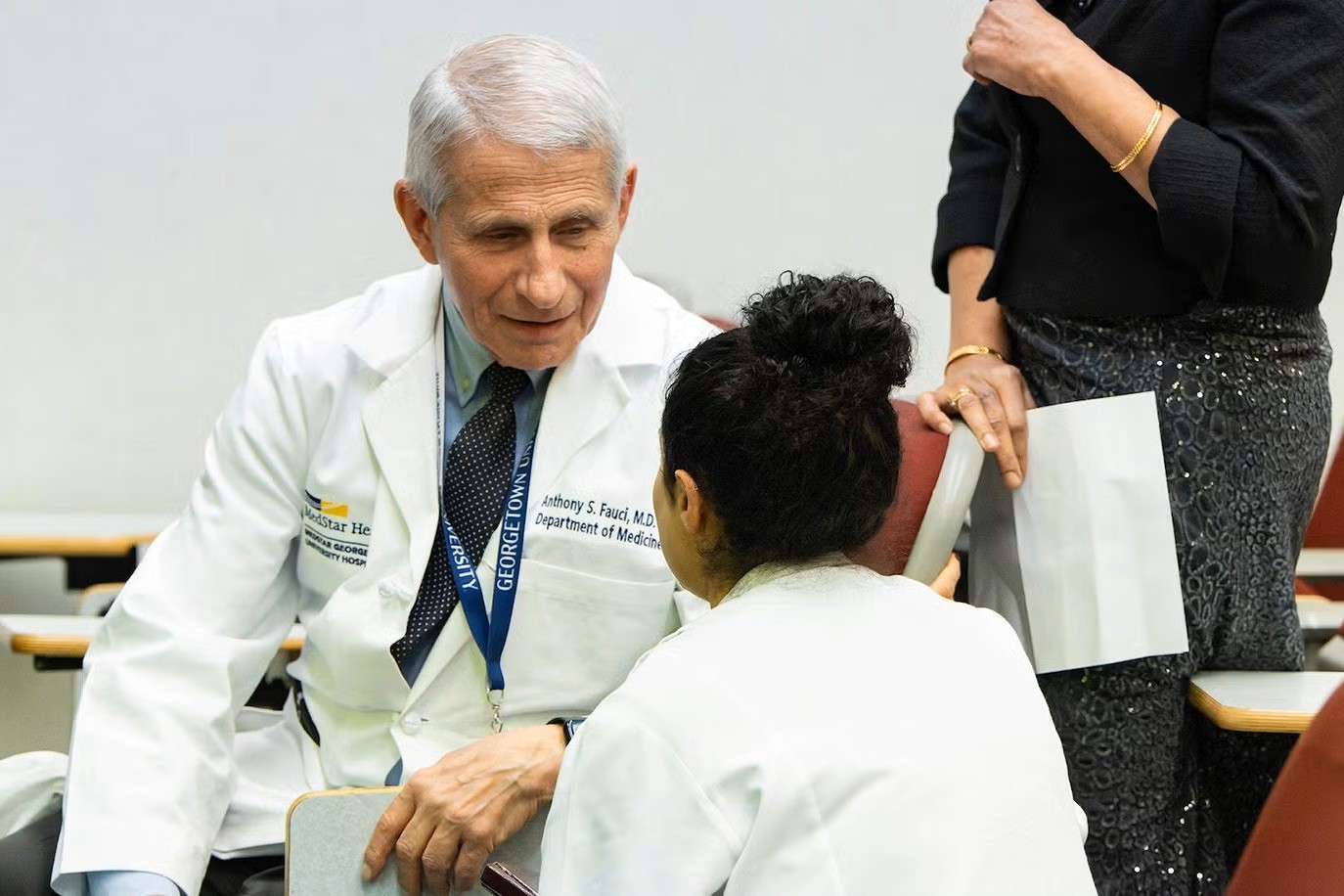
Dr. Anthony Fauci has become a household name, especially during the COVID-19 pandemic. But did you know his research work spans decades? Fauci's contributions to medical science are vast, covering everything from HIV/AIDS to Ebola. His dedication to public health has earned him numerous awards and recognitions. Fauci's research has not only saved lives but also shaped modern medicine. Whether you're curious about his early career or his latest findings, these 18 facts will give you a deeper understanding of his impact. Ready to learn more about the man behind the mask? Let's dive into the fascinating world of Dr. Fauci's research.
Dr. Fauci's Early Career
Dr. Anthony Fauci has been a prominent figure in medical research for decades. His journey began long before he became a household name during the COVID-19 pandemic.
-
Dr. Fauci joined the National Institutes of Health (NIH) in 1968 as a clinical associate in the Laboratory of Clinical Investigation at the National Institute of Allergy and Infectious Diseases (NIAID).
-
By 1984, he became the director of NIAID, a position he has held for nearly four decades, guiding research on infectious diseases.
Contributions to HIV/AIDS Research
Dr. Fauci's work on HIV/AIDS has been groundbreaking. His efforts have significantly advanced our understanding and treatment of the disease.
-
In the early 1980s, Dr. Fauci was among the first to recognize the emerging HIV/AIDS epidemic and began researching the disease.
-
He developed effective therapies for previously fatal inflammatory and immune-mediated diseases, which were crucial in treating HIV/AIDS patients.
-
Dr. Fauci played a key role in the development of antiretroviral therapies that transformed HIV/AIDS from a fatal disease to a manageable chronic condition.
Work on Other Infectious Diseases
Beyond HIV/AIDS, Dr. Fauci has contributed to research on various other infectious diseases, impacting global health.
-
He has conducted extensive research on respiratory infections, such as influenza, which has informed public health strategies.
-
Dr. Fauci's work on tuberculosis has helped develop better diagnostic tools and treatments, improving outcomes for patients worldwide.
-
His research on malaria has contributed to the development of vaccines and treatments, aiding in the fight against this deadly disease.
Response to Emerging Infectious Diseases
Dr. Fauci has been at the forefront of responding to new infectious disease threats, providing guidance and expertise.
-
During the 2001 anthrax attacks, Dr. Fauci advised the U.S. government on bioterrorism preparedness and response.
-
He played a significant role in the U.S. response to the 2009 H1N1 influenza pandemic, helping to develop and distribute vaccines.
-
Dr. Fauci was instrumental in the response to the Ebola outbreak in West Africa in 2014, supporting efforts to contain the virus and develop treatments.
COVID-19 Pandemic Leadership
Dr. Fauci's leadership during the COVID-19 pandemic has been widely recognized. His guidance has been crucial in navigating the crisis.
-
As a member of the White House Coronavirus Task Force, Dr. Fauci provided critical advice on public health measures to curb the spread of the virus.
-
He has been a vocal advocate for the importance of vaccines, helping to educate the public on their safety and efficacy.
-
Dr. Fauci's research on COVID-19 has contributed to the rapid development of vaccines and treatments, saving countless lives.
Awards and Recognition
Dr. Fauci's contributions to medical research have earned him numerous awards and honors.
-
He received the Presidential Medal of Freedom in 2008, the highest civilian award in the United States, for his work on HIV/AIDS.
-
Dr. Fauci has been awarded the Lasker Award for Public Service, recognizing his efforts in advancing public health.
-
He has been named one of Time magazine's 100 Most Influential People multiple times, highlighting his impact on global health.
Personal Dedication to Science
Dr. Fauci's dedication to science and public health is evident in his lifelong commitment to research and education.
- Despite his demanding schedule, Dr. Fauci continues to see patients, demonstrating his commitment to clinical practice and patient care.
Dr. Fauci's Impact on Science
Dr. Fauci's contributions to medical research and public health are undeniable. From his work on HIV/AIDS to his leadership during the COVID-19 pandemic, he's been a guiding force in infectious disease research. His dedication has saved countless lives and shaped policies worldwide. Fauci's ability to communicate complex science in simple terms has made him a trusted figure. His career is a testament to the power of science and compassion in tackling global health challenges. As we look to the future, his legacy will continue to inspire new generations of scientists and healthcare professionals. Dr. Fauci's work reminds us that knowledge, dedication, and empathy are crucial in the fight against diseases. His story is a powerful example of how one person's commitment can make a global difference.
Was this page helpful?
Our commitment to delivering trustworthy and engaging content is at the heart of what we do. Each fact on our site is contributed by real users like you, bringing a wealth of diverse insights and information. To ensure the highest standards of accuracy and reliability, our dedicated editors meticulously review each submission. This process guarantees that the facts we share are not only fascinating but also credible. Trust in our commitment to quality and authenticity as you explore and learn with us.
